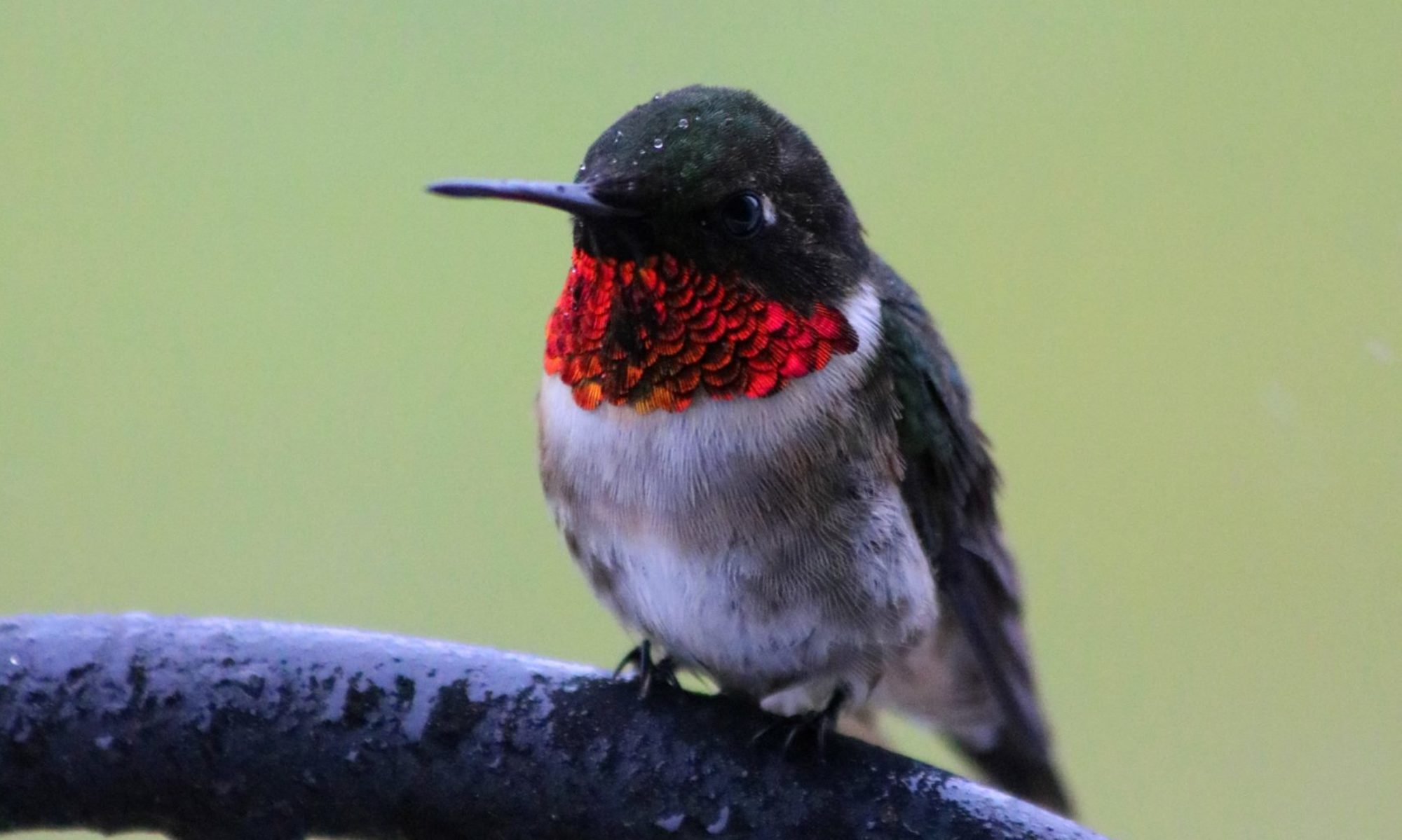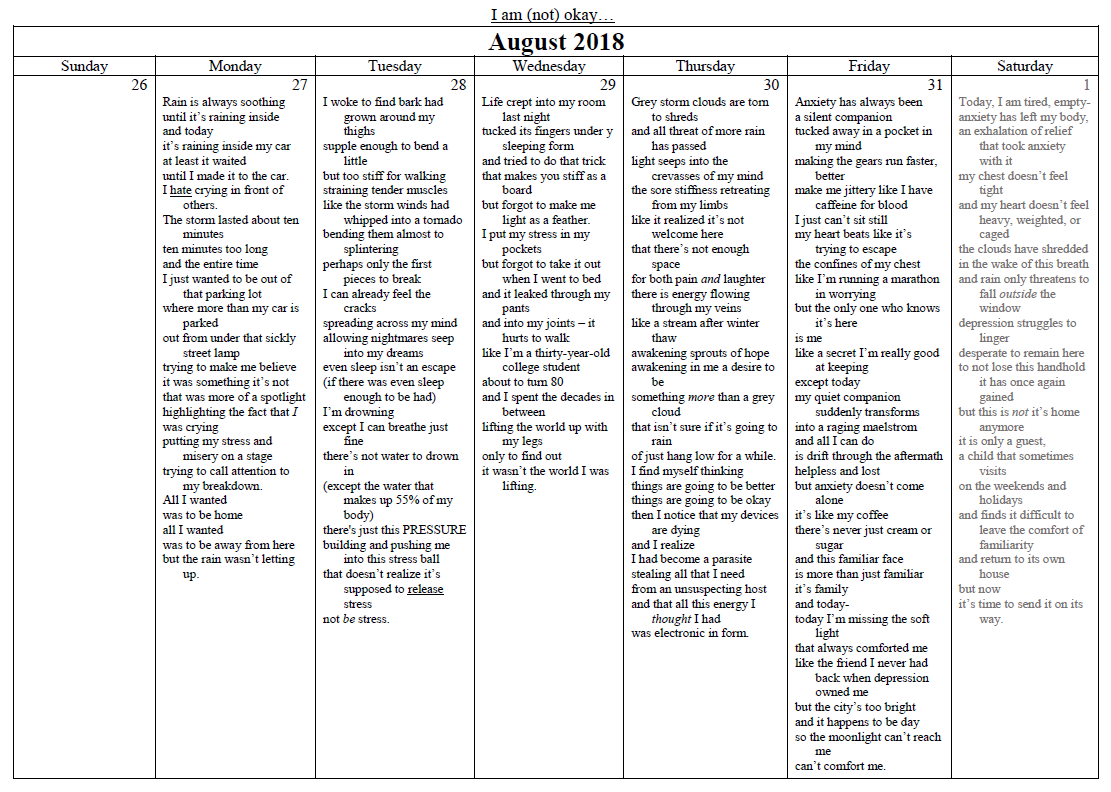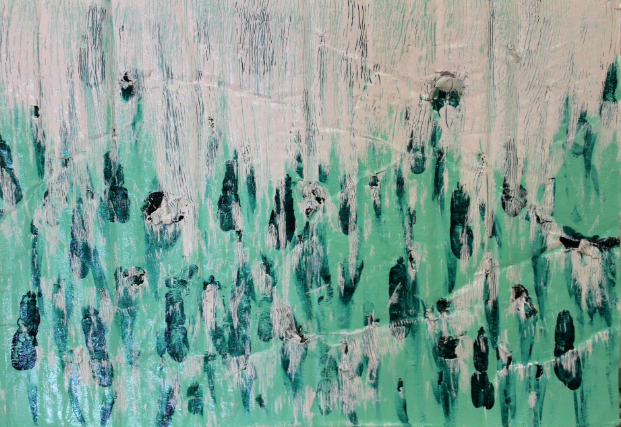Amy Lehigh
Winner of the 2019 LSSU Short Story Award
The day outside is beautiful; sun shining like the beautiful ball of burning life that it is, birds twittering in the sky, the air just the right temperature and humidity that it feels like nothing at all on the skin.
Yet Irena sits in her living room with a silent headset over her ears, reading a book.
She’s a dull one, really, that Irena. Always reading a book, or dozing off for a cat nap. It has never particularly been in her schedule to make time for “fun” like going out with friends, or any of that. She has always been alone, and that seems to be the way she likes it.
The book in her hands at this particular moment is also equally uninteresting—some drivel on the physiology of the human body. Or perhaps an anatomical reference? There are a great many diagrams, though it’s difficult to determine at a glance what they are meant to be for, being so inundated with dry text. Better than whatever gibberish on plants she had this last week, at the least.
Anyhow, Irena is dull not only in her habits, but also in her appearance. A thin, rather pallid face—from her lack of sunshine, clearly; the poor girl is like a flower left in a dark corner—with angular eyebrows, a sharp chin, and dull, gray eyes that either seem as though they peer into everything or are simply glazed over with boredom. It’s difficult to tell.
Despite these things, she really is like a neglected flower; she has a Roman nose that protrudes from her face, and though it only accentuates her thin cheeks at the moment, taken alone, it is quite the regal nose, not overly pointed nor bulbous and unattractive. Her hair is a chestnut brown that shimmers of summer, though she always has it tied back into a painfully rigid braid or ponytail (sporting the latter at the moment). Even her cheekbones, so visible that they are nearly oppressive to the eyes, are quite fine and delicate; if only her cheeks were filled a bit more, so that these cheekbones of hers did not cast quite such severe shadows into her face.
If only she would go outside and get a bit of sun.
To be frank, the most interesting thing about Irena is how uninteresting she is. But even the most uninteresting people can become interesting when something comes along to shake up their dull little world of habit.
For example, the little letter that is currently sliding through the mail slot of Irena’s front door.
The click of the metal slot closing once again seems to stir her, and she looks up from her book to the door. One slender hand reaches up to nudge the headset off of her ears, pushing it down to rest around her neck as her eyes lock onto the envelope, which is now sitting deceptively demure on the linoleum of the entryway. The muscles around her mouth twitch slightly, a frown caught in conception before ever spreading over her face.
Patience now; she has to think about the thing. Is it time for the mail yet today? What could a single letter be for? Her bills were paid (precisely on time, as always), and no one ever sent her anything in the mail, much the same way no one ever sent her anything by text. These very thoughts can be seen flicking through her eyes as she stares at the thing.
Finally, she rises and moves to pick it up. It’s a normal, pale envelope, though when she turns it over to the front there is no address, no stamp; no sign whatsoever of the sender—of course. After all, it isn’t even time for the mail to come yet…considering that it’s a Sunday.
This unusual fact seems not to perturb Irena, as she creates an incision in the envelope with a precise stroke of her finger and pulls out the note inside, which reads:
Irena: I’m afraid that you don’t know me, though I know you quite well. You intrigue me. That’s why I’d like for us to play a little game.
She snorts at this. “A ‘game’?” Her voice is surly, astonishingly so, and brusque, likely from her lack of social interaction. “You must not know me that well.”
While blunt, she has a point. She typically isn’t one for games. However, this one is a bit more tempting…
See, I know all about your boring little life. I think it could use a little bit of spice—
Wait. She lowers the letter, shaking her head slightly. She hasn’t even finished reading it! She puts the thing back into the envelope, saunters over to the kitchen, and drops it into the trashcan as she goes to her cupboards to grab something to eat.
How rude! Some effort went into that letter, handwritten as it was. Well.
Anyhow, the rest of the letter would have read something along the lines of, “so I came prepared to provide. Just start by searching your yard for three clues.”
Now she’ll never even know that. More extreme measures must be taken. A simple scavenger hunt would never get Irena’s attention, of course. …Of course.
Irena continues to go about her business as though the letter never existed. She pulls out a few dishes from her cupboards and things from the fridge—the house soon smells of chicken and vegetables—and makes herself some lunch. How apathetic can one get?
Well, testing that apathy once again as the sun sinks below the horizon, a watchful, omniscient eye closing, the doorbell sounds within the house, the cheerful, chirpy lilt echoing within the walls. Irena closes her eyes for a moment and takes a deep breath, setting the book down on her lap. “Again?” she mutters. Still, she rises, and she goes to the door, peering first out the peephole before swinging it open. Her eyes fall to a package on the porch, once more with a letter: both unaddressed, of course. She blinks—thinks.
She brings them in.
Setting the package on her kitchen table, Irena first opens the letter, with rather less care than before. One of her fine brows quirks up at the writing.
Dear Irena: Really? You didn’t even finish my letter before putting it in the trash? Fine, I see how it is. It wasn’t enough to stir you into action. Well, here is something that will. (Oh, but don’t worry, it isn’t inherently dangerous.)
Setting the letter aside, Irena reaches one hand out to the box. It’s cool, like the inside of a house despite the warm fall day. It hasn’t been outside for long. She fingers the lips of the cardboard flaps—they’re merely folded together, no tape. “Okay,” she says. She nods slightly, and her voice hardens. “Okay.”
With both hands, she tears the box open. Her breath catches. Inside is a blond plush dog, with a light blue note beside it: “Find my owner.” At first glance, the thing is rather mundane. But Irena’s first glance peers into it. She reaches in delicately, handles the thing as though it is made of blown sugar and will crumble with the slightest force.
Of course, she’s noticed the stain.
Her finger traces it, dark and dry but unmistakable. Blood. On the toy’s shoulder. Irena peers once more into the box, and now she scans it. The dry tree needles, the flecks of dark dirt and mud on the bottom and all over the toy, a leaf from an oak tree that had begun the process of turning orange.
She takes in a slow, sharp breath, the air hissing through her nose. There is the slightest twitch in the muscles of her jaw. She nods, almost imperceptible. “Okay,” she says.
And the game is on.
The next morning is overcast, light without sun, and Irena is on a mission. She wakes up, gets dressed, and is still pulling her shirt down over her belly as she walks out of her room. She turns to a storage closet in the hall, sliding open the door and reaching in to grab an old backpack, a sorry-looking thing that has clearly been sitting despondently in that dark closet for some time.
Irena swings the backpack over one shoulder and closes the closet once more. She brings her hair up and yanks it into a ponytail as she glances around her home. Soon, she’s grabbed the dog, the note, and some other basic things that one would need for a hike that may take a long time (thankfully her work schedule gives her Mondays off, lest all Hell breaks loose at the library without her), and settled them into her bag. She grabs the leaves from the box and tucks them into a pocket of her jeans, along with a cell phone. Moving to the window, she stares up at the sky for a moment. The overcast day threatens rain, but more in the bluffing way that nature does when it wants humans to be concerned with the picnic they planned or the state of their hair. Irena is concerned about neither, nor about the threat of rain.
Irena treks out of her house and out of town, venturing over the sidewalk alongside the road. Few cars pass by on the street; no one seems inclined to come out of their houses, either already at work or unwilling to embrace the dreary day. No different from Irena’s typical self in that respect, really. But today, Irena is not her typical, drab self.
Today, she is interesting.
The sweet scents of decaying leaves, of sap and bitter hints of musk permeate the air as Irena stops at a trail outside the town. She has left houses and home behind, standing amongst trees older than her grandmother’s grandfather. Her eyes peer around the trees, taking in the state, shape, appearances, soil preferences, favorite color of each. But goodness, the fresh air feels nice. Smells nice, too, in comparison to the stale air of that wretched house.
Irena sniffs—once, haughty. She removes her backpack from her shoulders for a moment, swinging it in front of her and rummaging through it without setting it on the ground. She pulls out the stuffed dog and glances around. She raises the thing near to her face as she scans, though not close enough to touch. She sniffs once again.
Replacing it, she swings the bag once more onto her back as she raises her eyes to the canopy, green-golden leaves shimmering above her in the breeze. Goodness, she is taking her time, isn’t she? The trail spans only one of two ways at the moment, north to south; pick one, dear.
Taking one last glance to the north, she begins to head south. Her feet march along the trail, kicking up small puffs of dirt. Perhaps the day could use some rain after all—the ground is quite dry. Irena’s sneakers are getting coated in dust. It has been quite some time since the last rain, thinking on it. She pays the state of her shoes no mind, however, and continues marching through the afternoon, the sky above brightening slowly like something ethereal, lighting up without the sight of the sun.
The air slowly thickens with the threat of rain and the scent of pine as Irena makes her way along the trail. She continues to scan the forest around her, occasionally pausing to remove the water from her backpack and keep hydrated (a very important thing, you know, for a person on a hike, even if that person is on a hike because of a mysterious set of notes and equally enigmatic package).
The trees slowly become more dense, oak and maple twining with different pines, some of which are dropping clumps of needles, leaves overhead turning from a sea of gold to reds and oranges. Birds are chirping up ahead, but their voices seem to ricochet into a void. It’s as though the leaves absorb all of the sound to give nothing but their own whispers in return. The light in the sky is beginning to fade, but more than that, the trees are growing darker, more solemn and menacing around the trail. They seem to have a secret they are unwilling to part with.
Yet Irena, fearless Irena, stares the trees down into a state of shadowed normality. Can she even tell when something is wrong? Because something certainly isn’t right. The air is becoming more and more unsettling…does she really not notice?
Irena pauses in the path. Perhaps…? No, she’s merely pulling the needles from her pocket. She glances up to the trees and nods. “Yep,” she says.
“Yep?” What is “yep?” Oh, now she’s discarding the needles. And the oak leaf. Lovely. Great. She’s just throwing everything away then, is she? This is ridiculous. This was a terrible idea. She’s never going to find the owner of that ratty old toy. How can she? She has no clues. She had leaves and mud and a toy and what could all that tell anyone?
Now there’s a branch in the path. She can go east or—oh. All right. She’s going west. No hesitation there. Her twiggy legs are just picking over the trail, paying no heed to the lackluster state of the road; sticks and debris scattered about, the undergrowth overriding the path. Rather, Irena is plowing through the tall grass and ferns that pop up in her way.
It’s getting rather sloppy around these parts now. Irena is marching right into a swampy area, mud sticking to the bottom of her shoes and her tracks leaving sliding trails on the uneven ground. It’s hard to find footing that doesn’t slosh and squish underfoot, and water is seeping into her sneakers, bubbling around her footsteps. Each step sounds like she is stepping on some unfortunate slop-creature, burbling and squelching indignantly.
At this point, it would be more effective to go off-path, where there is foliage to ground the soil, but Irena and her determined obstinance continue, heedless of the ease of travel all around. Soon the path rises a bit of out of the marsh, becoming hard, packed mud that is plenty dry, as if the stretch of slop was no more than a bluff. The path is easy to walk again. Now the problem comes from looking up at the sky, turning an unsettling shade of yellow-gray that makes everything feel sick and otherworldly. Dare I say, quite morbid.
A sound pokes up from behind. Irena doesn’t look, but behind her, something is following. It’s hard to determine at first; the shadows are pressing in, so it could just be a curious deer or perhaps a stray dog.
Irena continues to wander down the path, and the sound continues to follow. The sound of muffled steps, steps trying to keep quiet, steps of a thing on the hunt. Is she not paying attention? She hasn’t so much as glanced back. Well, it’s bound to become interesting soo—
It’s a man.
A man is stalking Irena.
He is cloaked in muted colors, blacks and grays and drab greens. But his face was unmistakable from the foliage, just for a moment. Chiseled features around a square nose and pinprick eyes like a weasel. He isn’t very big, but neither is Irena.
Neither is Irena.
She is still walking, not looking back, not giving any indication in the slightest that she knows she’s being followed. In fact, she stops for a moment to pull out her phone to check it, pale light erasing the contours of her face. The man doesn’t stop, and now I feel sick. Irena puts away her phone and continues to walk.
This was not what I’d had planned for something interesting. This isn’t even remotely close! I never wanted Irena in actual danger, being stalked like a fawn out in an open field by a thing worse than wolves, a human with evil on his mind, a human beginning to lengthen his steps as he comes closer, a human beginning to venture out onto the path, a human with an ice in his glassy gaze that makes me think of sickness and desperation and insatiable appetite. This was my fault, and he’s coming closer, and Irena doesn’t notice one whit, and why doesn’t he make some real noise, this snake, slithering up behind her?
Oh, Irena, run, turn around, do something!
But she isn’t turning around, and the man has quieted his steps, and his grin is splitting his face with a wild verve, drool spilling from his lips, and Irena is scarcely more than an arm’s breadth out of reach—
Irena whips around and smashes an open palm into the man’s face, and I can hear bones crack. The man stumbles back with a yell, holding his face. Irena slams a kick into his side, sending the man sprawling into the dirt. Leaping on top of him, Irena flips him onto his belly and yanks his arms behind his back, holding them there by kneeling on him. She holds the blade of her multitool to the back of his throat.
“Don’t move,” she says.
I…just…Irena.
She…she must have taken Tae Kwon Do? Or a self-defense class? Read a book? Goodness gracious, I know I’ve only followed her for the last half-year, but how much have I missed?
The man is babbling incoherently; I can’t tell if they’re threats or pleads for mercy. Really, I’d be thinking about the latter. Irena’s expression hasn’t changed from her usual stoicism—did she know he was following her?
Sliding her backpack off, Irena grabs the stuffed dog from it and shoves it in front of the man’s face. “Do you recognize this?” she demands, her brusque voice level as if talking to a clerk at a lemonade stand.
“No! Why the hell would I?” the man spits back.
“Just wondering. Why the hell would you stalk me, either?” she returns, with no more vivacity than before.
The man doesn’t seem to have a comeback for that, grunting and turning his face away, blood pouring from his nose. I feel a bit smug on Irena’s behalf.
“I’m calling the police,” she informs him casually. Pulling out her phone, she asks, “How many charges do you think you’ll have?”
The man doesn’t deign to answer that. But it makes me nervous, how Irena only has a knee on the man’s hands. One of her hands has the blade to his throat, and the other is on the phone. It’s a very precarious position for her. And I know it’s a fierce taboo act to interact with humans directly, know it quite well—I’ve been careful to keep myself a “neutral” presence with Irena, merely bending the rules without breaking them—but I can’t seem to help myself…
I sit on one of the man’s arms. It should feel like it’s gone to sleep; he won’t be able to move a muscle until I let him. I feel a spread of satisfaction as he whimpers uncomfortably. Yes, this is what you get, you nasty thing. How dare you try to hurt good Irena?
Well. I mean “good” relatively, I suppose. She has still yet to change her expression, and she’s speaking on the phone with the proper authorities it seems. Soon she sets the phone on the ground, the sound now on speaker.
“How many people have you come after like this?” Irena asks nonchalantly, apparently not expecting an answer.
“Why would I tell you?” he snaps, voice wet with blood.
Irena shrugs, a motion likely lost to him. “Just a question to kill some time. Are you sure you’ve never seen that toy before? Seems like this is your haunt, after all, and it’s from around here. Any ideas?”
“What the hell is it with you and that stupid dog?” he growls. “I told you, I don’t know where it’s from.” (My virgin ears courteously omit the cursing between his words.)
“I know you told me, but I don’t believe you. And it’s a long time until the police arrive. I don’t care if it’s anything to do with you, and I don’t care if you don’t know any names, but if you know something about where it’s from, I want to hear it. Maybe if you say something useful, I’ll even let you sit up.”
The woman on the speaker-phone babbles incredulously at this, echoing my own thoughts of what a terrible idea that is, but the man seems to seriously consider this for a moment. “A little ways from here…” he finally says. “A little ways further on the trail, there’s a spot I found. Like a grave. It was all fresh dug when I found it. I didn’t make it and I didn’t look in it, but I did make a cross for whoever’s it is.”
“How will I know where it is?”
“They’re birch branches. I wanted it to stand out.”
“Kind of you, for being a murderer yourself.”
“I’m not a murderer!” he cries, surprisingly desperate. “I [for a moment, I plug my sweet ears] some girls, but I didn’t kill anyone! I’m a good person, I swear!”
What a dirty mouth on this one.
“So that’s what you planned to do to me,” Irena says. “Then I won’t feel bad later for having broken your nose.”
As Irena proceeds to delay the man’s hope for a chance of escape—I’m surprised that he continues to fall for it—I think of how she could possibly have known that the grave was so close. She isn’t wrong, of course; this is the right place, and the grave the man spoke of it the right one, the one I found the dog near, but I wonder how she got this far.
I feel a pang, and I realize I feel slightly guilty about the situation I put her in. Of course, I didn’t know that there was someone out here that would stalk her, but nonetheless, I can’t shake the feeling that this whole ordeal is my fault. What’s worse, of course, is the fact that I can’t argue that it isn’t.
All I wanted was something more interesting to entertain me while I was bored; now I’m sitting on a man’s arm, committing a taboo act in so doing, as he’s pinned underneath the woman I never saw doing anything but reading books, or snoozing on her couch, or, at best, cleaning her toilet.
Soon, a couple pairs of headlights come down the trail. It’s dusk now, so the lights seem to appear out of a black void, creating a harsh contrast in light. Tires crunch over dirt and the vehicles come to a stop nearby as the authorities step out.
For good measure, I pat the man’s cheeks before I rise, and he’s left babbling unintelligibly like a man just out of the dentist’s office, much to my satisfaction. As a pair of officers escorts the disgrace away, reciting a rote series of rights to him, a pair comes over to Irena, a man and a woman.
“Irena?” the man gasps.
“You know her?” his partner asks.
Irena knows someone?
“This is my sister…” he says to her, then looks back at Irena. “Irena?” His tone bears a load of questions.
“Jonathan,” she replies simply. Sisterly love, isn’t that?
“What happened? Why didn’t you call me?”
“I called 9-1-1.”
“I know but, you could’ve—”
“You’re here now, aren’t you?”
Jonathan sighed, clearly exasperated. “Jeez! You never change. Are you all right, anyways?”
“I’m fine, but before you go, I could use some help.”
“Help? With what?”
You probably don’t want to know.
“I’m looking for something. It might be important,” Irena says.
“Looking for…? Irena, we don’t have time for this. We have to bring this guy back and—”
“Jonathan.” Her voice stopped him. “It could be important.”
He hesitated, looking at her. Then he said, “I guess they can take him without us. Lead the way.”
“You handle this, John,” his partner says. “I’ll cover you.” Jonathan gives her a nod, and as she leaves, Jonathan spreads a begrudging hand to Irena, and she begins the trek.
It is in this time, as Irena leads a course to an end which she can only possibly speculate, her confused brother accompanying her, flashlights flicking over the ground in near-utter darkness, that I wonder what she expects to find. She certainly expects nothing good, of course—that much was answered with the word grave. Still, her every step echoes with her confidence. She has no fear, this woman, this Irena, who very well could have fallen off the face of the Earth less than an hour ago at the hands of a predator without anyone knowing or giving her so much as a second thought.
Before I’m fully aware of it, they’ve stopped, flashlights shining on a set of birch branches lying on the ground, light bouncing off of the pale skin to make a luminous sphere around us, a ghostly, quivering blue-white reflecting off the faces of the trees, the leaves above, the faces of the people. It’s nearly blinding to look at. I avert my gaze to favor Irena.
Irena sets her backpack on the ground and pulls out her pair of gloves. Jonathan kneels to help as she begins to dig with her hands in the soft, muddy soil, but she says without looking up from her work, “Unless you have gloves, that’s a bad idea. It might get gross in a minute.”
Hesitantly, he stops, fingers slowly closing into his palms. In an attempt to be useful, he uses his flashlight to let Irena see what she’s doing, and his face is a mixture of befuddlement and concern. This only grows, of course, as he begins to see the corpse. He covers his mouth to keep himself from retching.
Irena unearths enough to get the picture. “A boy,” she says, as though it answers a question. “Can’t have been much older than eight. Probably not even.” She looks back at Jonathan, gesturing vaguely to the skull, mangled though it is. “His head was smashed in.”
Um…perhaps she had been one of those people that autopsies dead bodies? Yes, that seems likely, her personality considered…
As Jonathan regains his senses—along with myself—Irena pulls out the toy and inspects it again, picking up her own flashlight to do so. Finally, she shakes her head. “No. I can’t give you a name.” Standing, she hands the toy to the her brother, as well as my note. “That much is up to you. I figured out as much as I could. But I think if you test the blood stain on that toy and compare it to the body, it’ll be the same DNA.”
“How…how did you know this was here?” Jonathan asks, rising slowly from his place on the ground, looking at the corpse like a normal person—with astonishment and a slight sickly look.
My curiosity bites at me as well. How did she?
Irena answers by describing my box and its contents. She said she started with the leaves, stating that the needles were from Tamarack trees (what on Earth those are, I couldn’t tell you, though apparently they have needles) and that she guessed that everything had to come from the same area. Therefore, the needles had to come from an area with gold-going-on-orange oak leaves. She goes on to say that she knew that there had to be a marsh of some sort because of the mud still being fresh and the fact that there had been no rain in a long time. (I notice that she seems to deliberately leave out her strange sniffing habits. Fair enough, Irena, all people have their quirks.) The best lead of where it all converged was that it to be close to the town because of the short downtime between the apparent collection and the delivery. Beyond that—she was guessing. Guessing!
She explains her guess-timations further to Jonathan and agrees to hand over everything that rightfully titles itself as “evidence.” As they talk, I stare down at the small corpse in the ground, light resting beside it but on it no longer as the focus has shifted elsewhere, getting only the reflection of light off living skin, off wet ground to fill its shape and depth. It isn’t fair. When I was first here, I saw only the overturned dirt, the skull, the maggots. Now I see a boy, a young boy who lost his beloved toy, his name, his everything. I kneel and touch one of the little bones of the finger, poking out pure white against the rest of the ground. It seems almost warm to me.
After we get home, and Irena has given the police everything, she sits on her couch with a mug of cocoa in her hands. The sweet smell wafts into the house, overriding the scents of pine and rotten mud, and Irena sits there staring into nothingness for a while, hands wrapped tight around her mug as if to ward off some internal chill. Rain patters on the roof, reverberating around the house in a constant, quiet thrum. It falls in gray sheets outside the window, creates a static between this house, us two, and the rest of reality.
For all that boredom she caused me in these few months, it seems that I was neglecting my subject. I know that now. I also know that I’ll be reassigned if—or, more likely, when—it’s discovered that I interfered with the goon; I’m only a Narrator, after all. But for now, I don’t care. For all I’m concerned, it was worth it.
Irena closes her eyes. I stand before her, on the other side of the coffee table. I wonder what she’s going to do now. She opens her eyes, peers straight into me, takes a deep breath.
She sips her cocoa.
She never ceases to amaze.












